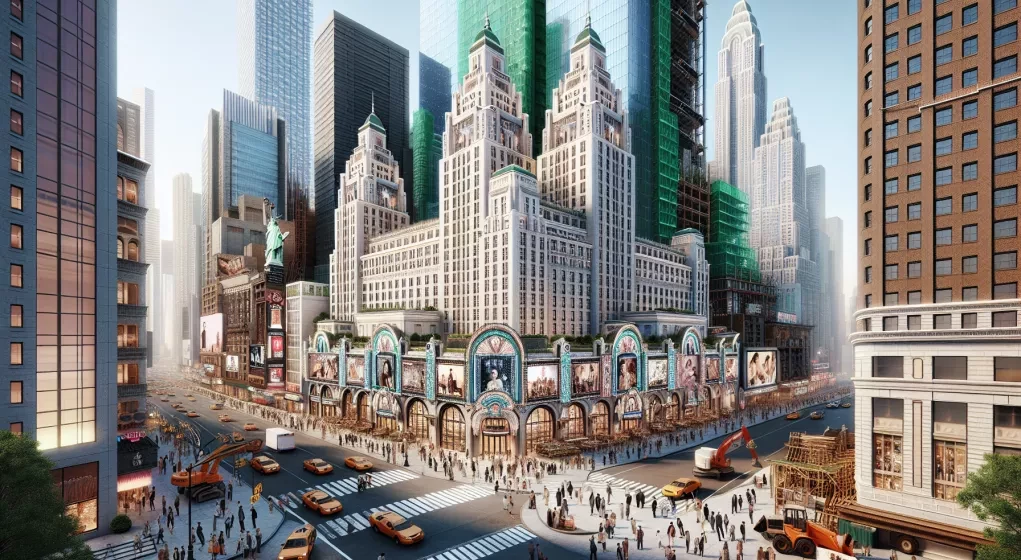As the calendar turns its pages to a fresh year, the vibrant heart of New York’s Times Square echoes with the tantalizing possibility that it might one day pulse with the intoxicating rhythm of slot machines and the shuffling of cards—a casino could soon call it home. Yet, the dreams of gaming glitz beneath the neon glow may remain just that—a dream—for a touch longer, with industry onlookers bracing themselves for an announcement delayed perhaps until 2025.
The anticipation clings to the air like cold breath in winter, tinged with a hint of frustration as Gov. Kathy Hochul’s latest budget submission glares conspicuously devoid of the expected revenue from casino licensing fees. The sum, staggering in its own right, would place at least a half-billion dollars into state coffers—for each casino, no less. Some estimates had even soared to the billion-dollar mark, enticing figures that now, it seems, will remain written in ledgers of wishful thinking until at least March 31, 2025.
The prolonged silence from the New York State Gaming Commission conveys a narrative of hesitation that some critics have colorfully described as a “circus.” Nevertheless, the show must go on. The Gaming Facility Location Board—the ringleader in this elaborate spectacle—is poised to unveil a coveted second act of inquiries for those bidders daring enough to dream of owning a slice of Big Apple casino royalty.
Last summer’s answers to the initial inquiries failed to offer much in the way of clarity, and with the answers to the follow-up in October still under wraps, the gaming entities lie in wait, each hoping to find the elusive key in these responses that will unlock the door to success. Whispers of bidding wars ignite the imagination, with talk of submission windows opening imminently, yet this hope is shrouded in the mist of speculation.
Beyond the veils of bureaucratic pause, operators find themselves ensnared in local controversies that could upend even the most meticulous of plans. From the Bronx to Queens, legal spats over parkland designations threaten to derail the lofty ambitions of Bally’s and Hard Rock International. Meanwhile, Las Vegas Sands stands toe-to-toe with Hofstra University on Long Island, entangled in a dispute steeped with allegations of opacity in governmental procedure.
These hurdles loom large, and the specter of unresolved tussles casts a long shadow. Should the gates to the licensing race ever fling open, operators entangled in these quandaries risk stumbling at the first hurdle, missing out on the golden opportunity to play in the nation’s most populous urban playground.
So, as the narrative unfolds and operators, observers, and hopefuls alike watch with bated breath, the only certainty is that the future of downstate New York’s casino landscape hangs delicately in the balance. With each tick of the clock, the time to deal the cards excruciatingly pushes out, just a little bit further beyond reach.






